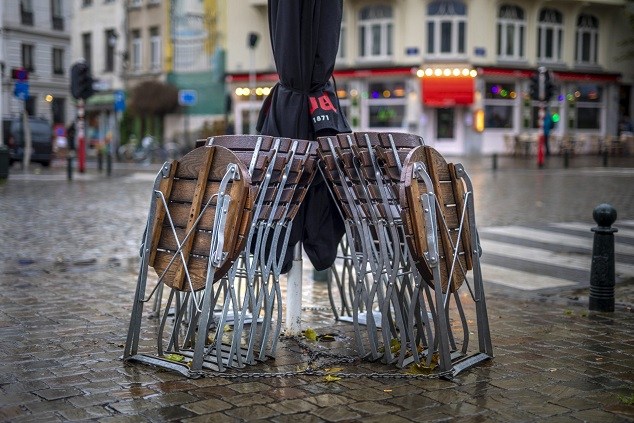Covid-19 continues to inflict enormous pain on Europe and the world. No sector has been unaffected by the pandemic, but some have been hit especially hard, including Europe’s hospitality and tourism sectors.
Many of Europe’s bars, restaurants and cafés will soon have been closed for an entire year. Meanwhile, as a result of the near total collapse in tourism, hotels are faced with the prospect of indefinite closure.
In Portugal, even before the start of the deadly third wave, 90% of tourism and hospitality companies said they were being severely affected by the pandemic. More recently, the head of the Hostelería de España association Emilio Gallego estimates that of the 277,000 bars and restaurants in Spain, 30% have closed permanently. That is 85,000 bars and restaurants which will never reopen, and hundreds of thousands of jobs gone for good.
Behind these immediate job losses is the even larger amount of jobs lost in related sectors dependent on hospitality revenues (the ILO estimates that every job in the hospitality sector supports 1.5 jobs elsewhere).
Aside from the social damage caused, the huge reductions in income, business and value added tax revenues heap financial burdens on governments which are not only struggling to contain the virus, but also trying to support workers struggling to make ends meet.
Businesses and workers are in urgent need of practical assistance, and Europe as a whole needs a vision for how the hospitality sector – and the economies it supports – can recover in the next year.
Recovery task force
That is why the EU Commissioner for Jobs and Social Right Nicolas Schmit was right to call for the hospitality and tourism sectors to be placed at the heart of the recovery plans currently under development in national capitals.
What that means is that we urgently need to see concrete steps being taken before thousands more business owners make the heart-breaking decision never to reopen.
To help pave the path to recovery, trade associations from a broad range of sectors recently came together to develop a joint memorandum of understanding focused on ensuring that hospitality and tourism businesses across Europe can access the supports they need, through the Recovery Fund and other avenues.
Roundtables in related sectors such as aviation have succeeded in bringing together diverse stakeholders to both call for systematic relief and to make ambitious commitments in support of recovery.
What we need now is a task force bringing together this business coalition, national governments and Commission representatives. Portugal’s Tourism Minister Rita Marques is convening all of her EU counterparts on March 1st for a working session on tourism recovery, which is a perfect opportunity to kick start progress on this initiative.
This task force should provide practical guidance to governments about how to ensure that their recovery plans support the tourism and hospitality sectors in a targeted, efficient and immediate way.
Good progress is already being made in some countries. For example, France is providing detailed guidance to small businesses about how to apply for support from the recovery fund. Every country in Europe should be doing the same.
The EU Recovery Fund is a remarkable shared achievement, putting hundreds of billions of euro to work in getting our economies moving again. But as German Finance Minister Olaf Scholz said last week, “we have one shot to make it work”.
A sustainable recovery needs a sustainable reopening
Apart from the need for expanded economic assistance in the short-term, we urgently need a clear strategy for how bars, restaurants, hotels and other small businesses can keep customers and staff safe when doors finally reopen.
The vaccination rollout is restoring people’s hopes at this difficult time, but the reality is that the virus will remain with us. So as part of this plan we need to help businesses to support track and trace initiatives, deploy rapid testing, improve ventilation and ensure that strict distancing and hygiene guidelines are adhered to.
We cannot yet eradicate Covid-19, but we can make indoor settings far safer for the next (and hopefully final) reopening.
A long-term vision
Applications to the Recovery Fund must include a strategy for sustainable recovery, which includes embracing the potential of digital and green innovation. This is something that we know our members and their customers across Europe’s bars and restaurants are committed to, and we welcome the ambition to look beyond the immediate needs of the crisis, and towards future-proofing this crucial part of Europe’s heritage for the decades ahead.
Three tasks
In summary, we need a task force focused on three things:
- Unlocking EU Recovery Fund and national supports for hospitality and tourism businesses as efficiently as possible.
- Providing clear and consistent guidance on how to reopen safely to avoid further crippling shutdowns.
- Creating a vision for the medium-term rehabilitation of the bars, restaurants and tourism enterprises which make European destinations the most popular in the world.


